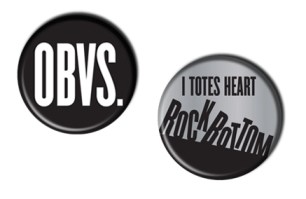What’s hot in 2012? According to techies: voice controlled devices, fashionistas: floral prints, foodies: ceviche, and linguists: vocal fry. Vocal fry, the sound that used to be exclusively the real estate of bored teenagers and alluring young women, is making its way into the lingua franca. To get a better idea of what the linguistic quirk sounds like, the New York Times suggests watching Maya Rudolph as Maya Angelou on Saturday Night Live or listening to Mae West ask her gentleman friend to come up and see her sometime.
All this interest in vocal fry comes after a study done by researchers at Long Island University showed that more than two thirds of a small sample of young women used these creaky tones. While the study only describes what is happening, other scientists and armchair analysts are hard at work trying to explain why. Amanda L. Chan of The Huffington Post thinks that women are simply mocking popstars like Ke$ha who use vocal fry in their songs. She’s not alone; bloggers have caught word of the story and attacked vocal fryers as obnoxious young girls and faux-sophisticates.
Unsurprisingly, researchers disagree. “If women do something like uptalk or vocal fry, it’s immediately interpreted as insecure, emotional or even stupid,” says Carmen Fought, a linguistics professor at Pitzer College. Penny Eckher, a Standford University professor points out that “A lot of these really flamboyant things you hear are cute, and girls are supposed to be cute. But they’re not just using them because they’re girls. They’re using them to achieve some kind of interactional and stylistic end.”
In other words: give women a little more credit. Sociolinguistic research on gender has shown that, while women as a whole tend to stick closer to standard language than men, young women are often pioneers in linguistic development.”It’s generally pretty well known that if you identify a sound change in progress, then young people will be leading old people and women tend to be maybe half a generation ahead of males on average.” says Mark Liberman, a University of Pennsylvania linguist.
Why young women are at the vanguard of innovation remains a mystery. The answer may lie with social expectations that surround relationships, work, and families. Because dense, multiplex networks tend to be most likely to give rise to linguistic developments, young women — individuals who are likely to rely on and socialize with friends rather than family, who are not yet wives or mothers, and who are forming new relationships at school or work — are fertile grounds for variation.
With vocal fry as only the newest member of the coined-by-young-women club, I thought it might be nice to take a look back at some of the older inductees and their accomplishments.
Like
Perhaps one of the most obvious members of the group, like was introduced to the vernacular by valley girls but has gained cultural traction everywhere from cartoons to Congress. While we like (ha) to associate “like” with silly girls, our friend over at the Language Log talk about how the “Out-Group Illusion” means that the speech of marginalized groups (like women, people of color, and younger people) is often more closely monitored and harshly criticized than that of normative ingroups.
“That’s like so five years ago.” -Cher, Clueless
“Like, let’s get out of here, Scoob.” -Shaggy, Scooby Doo
Uptalk
Like Professor Fought mentioned, uptalk is one of those things that people tend to equate with insecurity. Despite stereotypes, uptalk is actually most frequently used by people in powerful positions to appear non-threatening or to further assert dominance by requiring a listener’s attention and response.
“This is — an agenda! It’s a culture war agenda! They’re out to get Republicans, they’re out to get Christians, they’re out to get people who are {breath} helping Bush; anybody they perceive as not sharing their agenda, they’re out to get!” -George C. Deutsch, WTAW interview
“Thank you. Thanks for the warm welcome, Thank you for the chance to come and speak to the Philadelphia World Affairs Council. This is an important organization that has uh since 1949, has provided a[@C] forum for debate and discussion on important issues.” -President Bush, Speech to the Philadelphia World Affairs Council
Abbrevs
“Mostly I just want to make fun of myself and all the follies of my past & present and yours too, because life is obvs hands down totes RIDIC.” – Riese, I Want One VLOG I Wanted to Come Through, Oh, To Come True
Wasei Eigo
Americans aren’t the only ones creating new ways to talk; young Japanese women have coined plenty of wasei eigo–pseudo-anglicisms–despite a pervading sexist belief that most words come from male professionals. Young women were responsible for at least three words that I know my life would be a little drearier without: furiita (freelance writer), itameshi (italian food) and ike ike gyaru (party girl).
Fetch
“Stop trying to make fetch happen” totally made fetch happen.
“That is so fetch!” – Gretchen Weiners, Mean Girls



